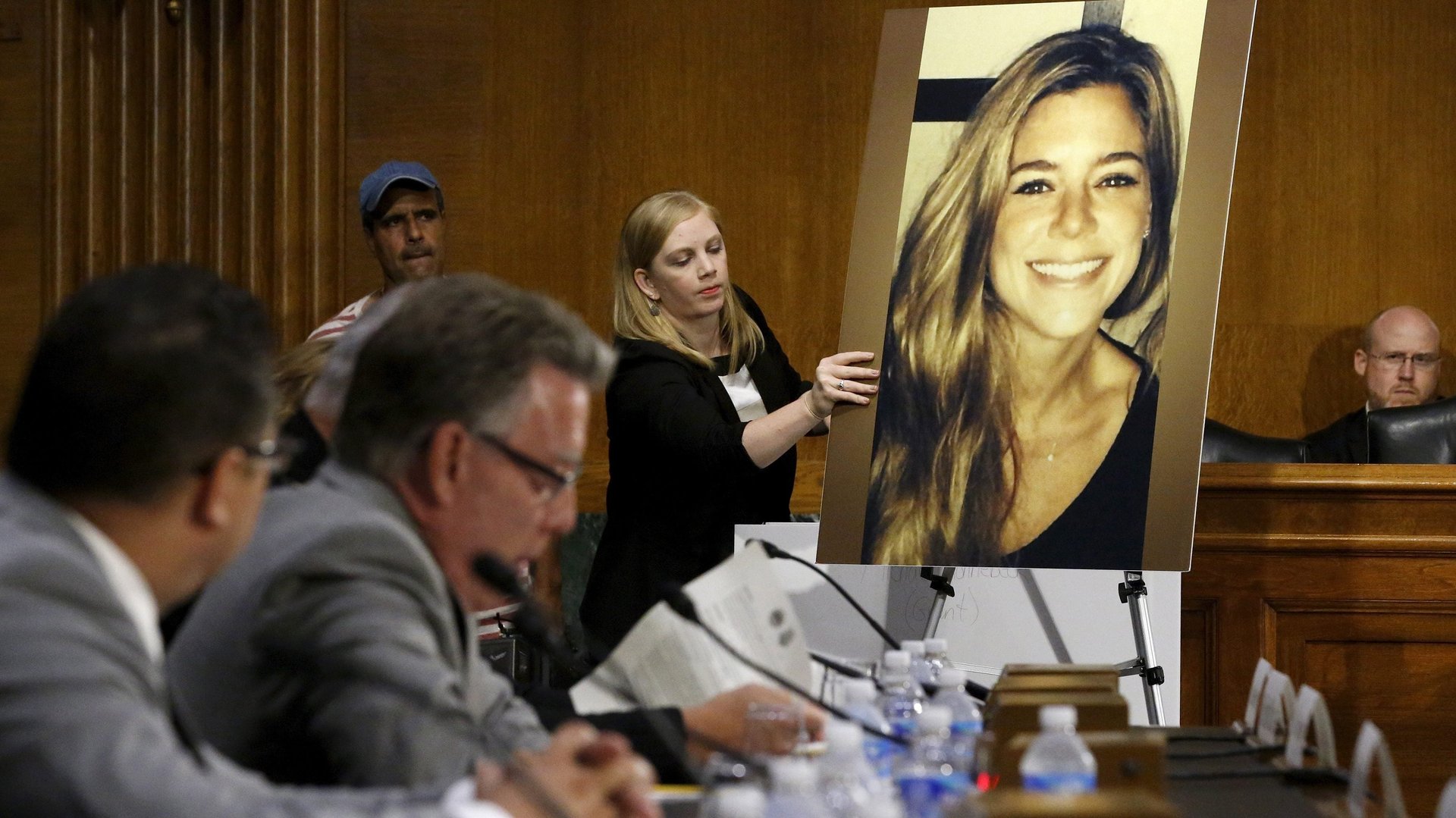“Kate’s Law” will punish undocumented immigrants but won’t do much to prevent crimes by them
The US House of Representatives has passed a bill increasing prison sentences for undocumented immigrants who illegally reenter the country after being deported. Its aim is to prevent tragedies of the kind that befell Kathryn Steinle, a 32-year-old woman who was shot and killed in 2015 by an undocumented immigrant.


The US House of Representatives has passed a bill increasing prison sentences for undocumented immigrants who illegally reenter the country after being deported. Its aim is to prevent tragedies of the kind that befell Kathryn Steinle, a 32-year-old woman who was shot and killed in 2015 by an undocumented immigrant.
President Donald Trump, who has used Steinle’s case to rally support for his anti-immigrant policies, is a big backer of what’s become known as Kate’s Law (pdf). On June 28 he hosted family members of other victims slain by undocumented immigrants, and has been deploying subordinates to promote it. “We must send a clear message that re-entering after having been previously deported will cease to be a minor matter, but will result in prison and deportation,” wrote attorney general Jeff Sessions in a Fox News op-ed ahead of the vote.
But, much like another Trump immigration policy, a border wall between the US and Mexico, Kate’s Law would do more to appease immigration hardliners than to fix the US immigration system.
Here’s the alleged chain of events that led to Steinle’s death. Juan Francisco Lopez-Sanchez, the man accused of her murder (he’s pleaded not guilty), served a sentence in federal prison for reentering the US illegally after being deported. After his release he was shipped to the San Francisco Sheriff’s Department, which had an outstanding warrant on him for selling marijuana.
Federal immigration authorities asked the sheriff’s department to detain Lopez-Sanchez until they could pick him up. However, they didn’t produce a court order or a warrant, which the city requires to honor such requests. So after San Francisco decided to drop the marijuana case, Lopez-Sanchez, who had been deported five times and convicted of several drug offenses, walked out, got hold of a stolen gun, and shot Steinle—by accident, he says.
Kate’s Law calls for sentences of up to 25 years for deported criminals who are caught reentering and have committed serious crimes. Its supporters say longer sentences would deter people such as Lopez-Sanchez from coming into the US in the first place.
Still, if the law passed, those already in the US who get those tougher sentences could still walk out free after they serve them, because the law does nothing to improve coordination between federal and local agencies. Like Trump’s wall, it would also mean extra spending. Conservative think tank the Cato Institute called it “a waste of federal resources,” saying it would increase the number of nonviolent prisoners without “protecting Americans against serious criminals.”
The bill’s sponsor, Virginia congressman Bob Goodlatte, seeks to address that issue through another bill that also passed today. It restricts funding to “sanctuary” jurisdictions—those with policies that protect undocumented immigrants, such as refusing to detain them for immigration authorities without a warrant. But it’s not clear that would work either. Cities across the country have said they are committed to keeping such measures in place regardless of funding cuts.